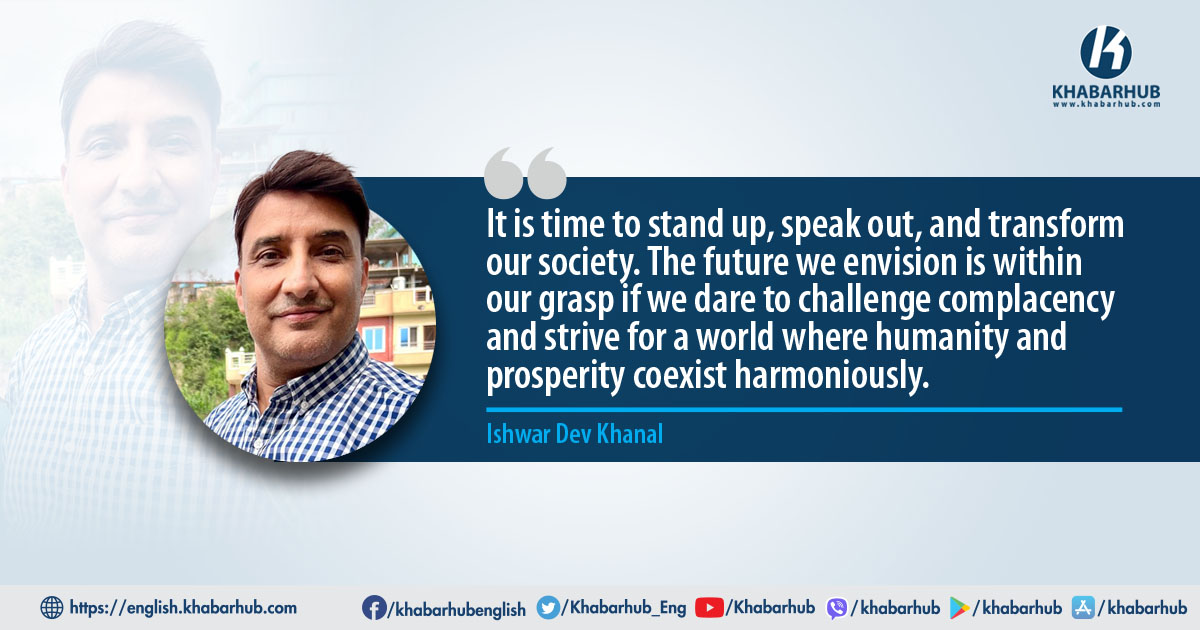What future awaits our country? What world do you envision and choose? We live in a time when disease and hunger plague many, alongside religious conflicts, economic disparities, and a glaring lack of economic justice.
Millions of families have been torn apart by war in various nations, while prosperous societies grapple with a troubling absence of human compassion and cultural connection.
Ironically, in these affluent countries, the frenzy for wealth often fuels poverty, leaving the marginalized even further behind.
Developing nations face scrutiny for their inability to address fundamental issues like food insecurity and inadequate shelter.
Countries such as Ukraine, Iraq, Afghanistan, and Israel are caught in perpetual turmoil, yet their internal chaos has not derailed the systemic structures that uphold their existence.
In contrast, Ethiopia, long burdened by poverty, is making strides toward economic revitalization.
If we fail to engage our knowledge meaningfully, we become passive witnesses to political decisions, rendering our credentials meaningless.
Similarly, Bangladesh is emerging as a significant player in the global textile market, proving that hope can flourish even in the most challenging circumstances—especially when political leadership exhibits integrity.
In our world, prosperity often seems devoid of humanity, while in places where compassion thrives, economic stability is lacking.
Some regions are bustling with industrious citizens, yet their political landscapes remain chaotic.
Others witness nature’s resilience despite overwhelming adversities.
Compared to many global situations, we Nepalis are fortunate to enjoy beautiful geography, a clean climate, abundant sunshine, and plentiful water resources.
Yet, we remain ensnared in the same enduring issues, making the struggle for basic needs feel like a predetermined fate.
Amid our collective dissatisfaction, the one thing we still cling to is hope.
Is this world disintegrating solely due to the actions of the selfish? Do educated elites and intellectuals bear equal responsibility? The answer is complex.
As Albert Einstein observed, “The world is not only becoming dangerous because of bad elements, but those who are silent even after seeing and hearing are equally responsible.”
Recent events illustrate this point. The polarization in Nepalese society over the arrest of Kailash Sirohiya, Chairman of Kantipur, sparked intense debates on morality and justice.
This division led to the deification of individuals like Sirohiya, blinding many to the broader implications of their actions.
For instance, one young leader remarked about the polluted Dhobikhola during the rainy season, praising the supposedly pristine Bagmati River. And some PhD. holders stood beside this leader, drawing applause from workers who lacked the context.
Educated individuals should not only express divergent views on public affairs but also engage in collective analyses of contemporary and historical issues.
Such moments raise critical questions: Are we using our education and hard work to perpetuate false narratives? Competent individuals often remain silent while the politically ignorant blindly support corrupt leaders.
If we fail to engage our knowledge meaningfully, we become passive witnesses to political decisions, rendering our credentials meaningless.
These dynamics not only stifle social existence and progress but also reflect a troubling political ignorance. The integrity of politics suffers as long as educated individuals evade their responsibilities.
Corrupt leaders will exploit this silence, ultimately affecting the entire population. We must wield our intelligence and political literacy effectively to hold leaders and governments accountable.
Being politically literate means recognizing wrongs, irrespective of political allegiance. Intellectuals need a mindset shift. If society awakens to identify wrongs as such, we can guide our communities toward a brighter future.
In Nepal, current leaders strive to keep the populace uninformed and powerless, fearing the challenges that an educated public would present.
Both leaders and intellectuals need to cultivate the knowledge and will necessary to build a thriving society. While civil society looks to intellectuals as change agents, many self-proclaimed thinkers often emerge as mere followers of political figures.
Historical figures like John Milton and Edmund Burke championed freedom of speech and sought to transform society through principles rather than political expediency.
Their arguments centered on moral values and social concerns, contrasting sharply with some intellectuals in Nepal who align themselves with party loyalty rather than independent thought.
If you, as an intellectual, disagree with these observations or believe in the supremacy of a leader or party, then the conscious public must ask: What future awaits our country?
Educated individuals should not only express divergent views on public affairs but also engage in collective analyses of contemporary and historical issues.
Intellectuals must expose the lies perpetuated by leaders and supporters, possessing the courage to challenge both right and wrong.
When sharing opinions on social media platforms, we must scrutinize whether our views are truly independent or influenced by political leaders or business interests.
Those who claim intellectualism but rely on party rhetoric often unwittingly perpetuate falsehoods.
I have criticized self-proclaimed intellectuals for their blind support of various political figures, yet rather than addressing their own political freedoms and the importance of free expression, they often respond defensively.
Yet, instead of addressing their political freedom, freedom of information, and freedom of expression, they seem defensive.
The stark reality is:
The country is stagnant.
Market prices have skyrocketed.
Access to health and education remains limited.
Public infrastructure is in disrepair.
Corruption is rampant, with bribery commonplace.
Tax obligations often require bribes.
Infrastructure projects fail to endure.
Leaders betray their promises and engage in corruption.
If you, as an intellectual, disagree with these observations or believe in the supremacy of a leader or party, then the conscious public must ask: What future awaits our country?
It is time to stand up, speak out, and transform our society. The future we envision is within our grasp if we dare to challenge complacency and strive for a world where humanity and prosperity coexist harmoniously.









Comment